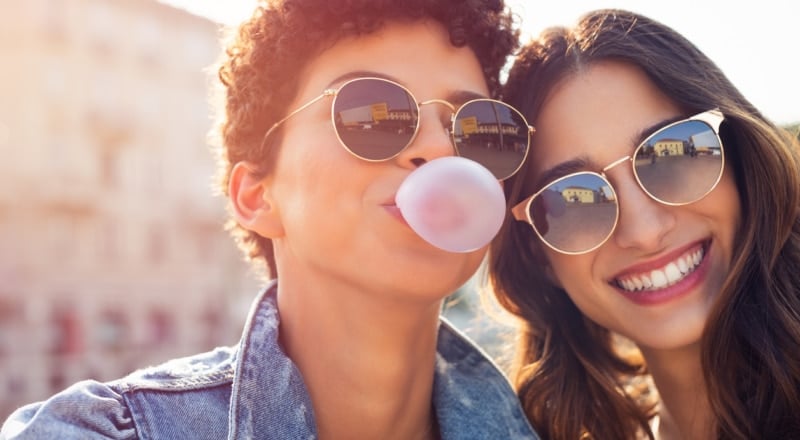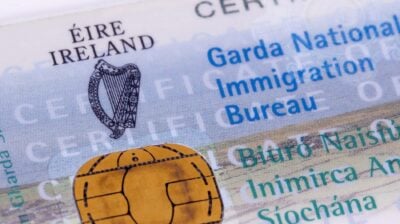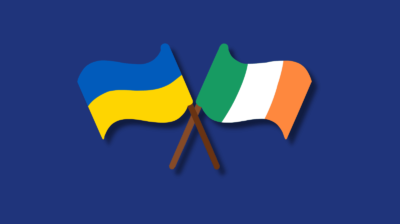Your right to be treated equally as a young person in Ireland
Learn more about your rights if you experience discrimination in Ireland


This factsheet is an extract from the publication Know Your Rights: The Rights of Children and Young People published by the Children’s Rights Alliance. It is reproduced here with their kind permission. Know Your Rights is a public information project designed to inform everyone, in plain language, of the rights and entitlements children have in Ireland and where to go when they are not respected.
As a child or young person, you have a right to equal treatment. Depending on your age and some legal restrictions, you also have the right to take part in the life of your community, in employment, and to make independent choices about things that concern you.
Your right to be treated equally as a young person
What is equality or equal treatment?
Equal treatment is about recognising that everyone has the same worth and should be treated with dignity.
Discrimination happens when you are treated differently or less favourably than someone else in the same situation because of:
- Your gender: for example, if you identify yourself as a boy or a girl. Discrimination can be based on your gender identity which is your deeply felt internal identity as female, male, or another identity such as non-binary. It can also be based on your gender expression which is how you show your gender through clothes, hair or voice
- Your marital or civil status: whether or not you are married or in a civil partnership
- Your family status: if for example you are pregnant, a parent of a child, the carer for someone with a disability or someone without a family
- Your sexual orientation: whether or not, for example, you are heterosexual (straight), gay, lesbian or bisexual
- Your religion, or lack of religious beliefs
- Your age (this generally only applies to those 18 years or older)
- Your disability: if you have a disability, you should receive equal treatment
- Your race, ethnic background, nationality or colour
- Whether or not you are a member of the Traveller community
These personal characteristics are known as ‘discrimination grounds’. You also have a right to be protected from harassment. Harassment includes things like offensive comments and text messages or physical things like pushing or hitting people.
What is indirect discrimination?
Indirect discrimination is when someone is treated less well than other people because there are requirements which they would find harder than others to fulfil.
You have the right to be protected from discrimination when you:
- are at school
- buy or sell something
- use a service like the bus
- attend a youth or sports group
- are in employment
Sometimes discrimination happens because of:
- negative attitudes
- stereotypes
- beliefs, like racism
What can I do if I feel I have been discriminated against?
If you feel you have been discriminated against based on the areas above when trying to access goods and services or in education or employment, you can complain to the Workplace Relations Commission (WRC).
To complain to the WRC you must first notify the person or company that you wish to complain about. You must do this within two months of the event. The WRC has more information about how to make a complaint on its website. The WRC will issue a legally binding decision that will try to fix your situation. In some cases, you may get compensation.
Other options you can contact:
- Irish Human Rights and Equality Commission: You can contact the Irish Human Rights and Equality Commission (IHREC) for information and guidance.
- Parent, guardian or support organisation: You should also look for support from your parent or guardian or from the support organisations listed at the end of this guide.
- Ombudsman: You also may be able to complain to the Ombudsman for Children
What if I feel I have been a victim of harassment based on race, sexual orientation, gender or religion?
You have a right to be protected against threatening, abusive and insulting words and behaviour carried out:
- to your face or online
- in publications
- on displays
- in other materials
If you think you have been a victim of this type of treatment, you can contact the Gardaí on 112 or 999 and report it as a crime.
It is a criminal offence for anyone to:
- physically threaten you
- harass you persistently
- assault you
- cause you serious harm for any reason
It is also an offence for someone to damage or threaten to damage your property. Again, you can report this to the Gardaí. Read our articles on discrimination and hate crimes in Ireland to learn more.
Need more information?
We are here to answer your questions and talk through your options. Our online chat service is for 16 to 25 year olds and is available Monday to Friday, 4pm to 8pm. Chat to us now about your situation.
- Chat now to a trained Youth Information Officer
- Or leave us a message and we will email you back






